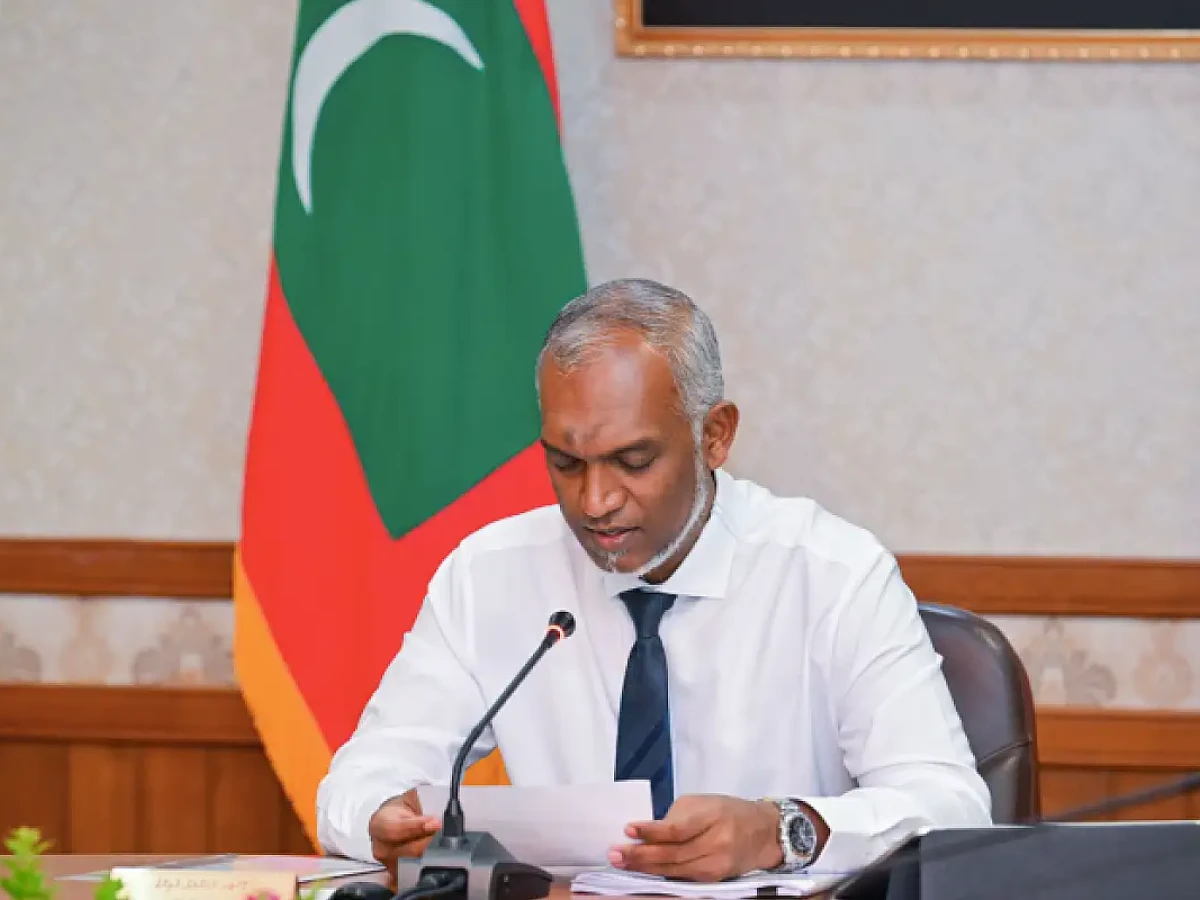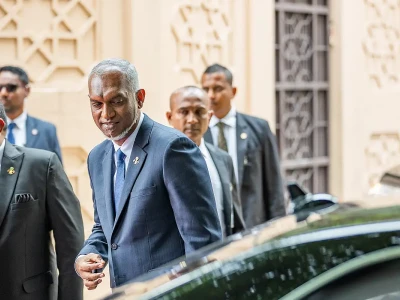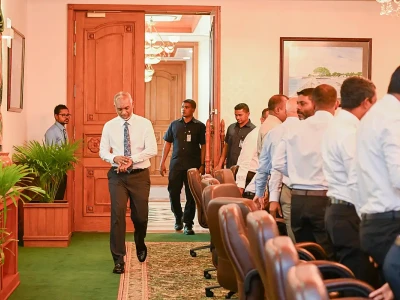
Top court to hear impeachment amendment challenge
The MDP, which has a full majority in parliament, amended the rules in how the votes can be counted.
Top Stories
-
Mauritius suspends diplomatic relations with Maldives over Chagos
-
Ihsan alleges filming of his family by opposition figures
-
‘Yes/no’ referendum format to enable electoral fraud: Shahid
-
Accident suspect released on conditions after child’s death
-
President says Malé council work stalled under opposition mayor
By
Fathmath Ahmed Shareef
The Supreme Court has accepted a plea filed by the Attorney General seeking to quash an amendment to the parliament rules of procedure that allows the removal of the President or Vice-President on the basis of the number of lawmakers present at the given time in the parliament.
Attorney General Ahmed Usham filed a constitutional dispute in the Supreme Court on 28th of last month seeking annulment of all three amendments to the parliamentary rules.
According to the constitution, two-thirds of the total votes of the parliament are required to remove the president or vice-president. The total strength of the current parliament is 87. Therefore, 58 votes would be required to remove the president and vice-president.
The MDP, which has a full majority in parliament, amended the rules in how the votes can be counted. Many PPM/PNC members resigned from parliament to join the new government's cabinet and some other top positions. So there are now 80 members in the Parliament. Two thirds of 80 is 54.
MDP and The Democrats combined have 57 members in parliament, which is according to the amendment would be enough to impeach the president.
The amendment to the Rules of Procedure was passed on 18 December.
Currently in parliament
-
The Democrats: 13 members
-
MDP: 44 members
In addition to this, amendments to Articles 202 and 203 of the Parliament Rules relating to the removal of the President or Vice-President were also passed by the committee.
According to these amendments:
-
Notice of such resolution shall be given to the President or Vice-President within two days, not exceeding public holidays, of receipt of the resolution; after the expiry of the 14-day notice, the motion shall be tabled in parliament on the earliest non-public holiday; the article did not specify a time period for such a resolution to be put on agenda
-
The debate in Parliament on the resolution shall not, in any case, exceed three hours; the President or Vice-President will be given 30 minutes to defend himself, while the remaining two hours and 30 minutes will be given to political parties and private members to debate
-
The resolution requires a seven-member committee to investigate the allegations; earlier, the rules called for an 11-member committee and it should have at least one member from each political party and an independent member
-
The President or Vice President shall have the right to appear and defend himself before the committee; a maximum of three lawyers may be used in defence
-
If the committee summons any person for questioning or wants to obtain a document for its inquiry into the resolution, at least two hours’ prior notice should be given
-
The committee must complete its work on the resolution within a maximum of five days of receipt of the matter and send it to the Speaker; With that, the report must be sent to the President or Vice-President for response and a written reply must be given within two days
-
The committee must vote on the report within five days of sending it to the Speaker.
Related
Related

Top Court issues stay order on impeachment amendment

Govt seeks to nullify opposition advantage in impeachment process

Nasheed concerned over MDP ridiculing govt for India ties

